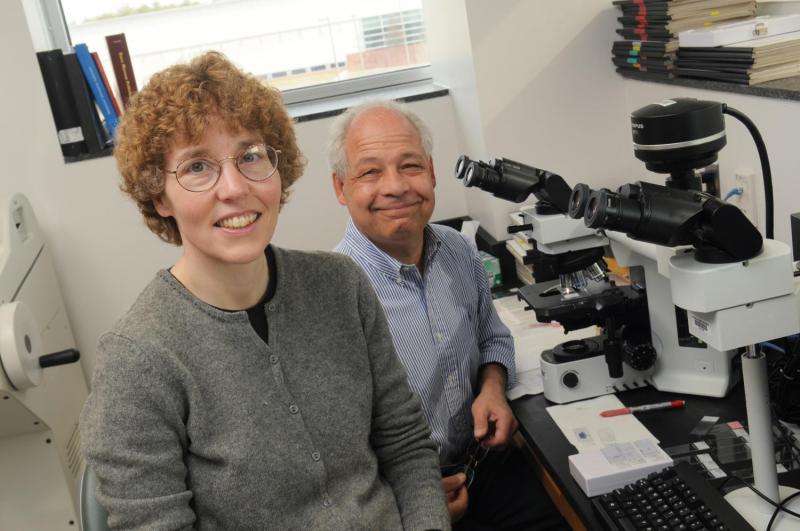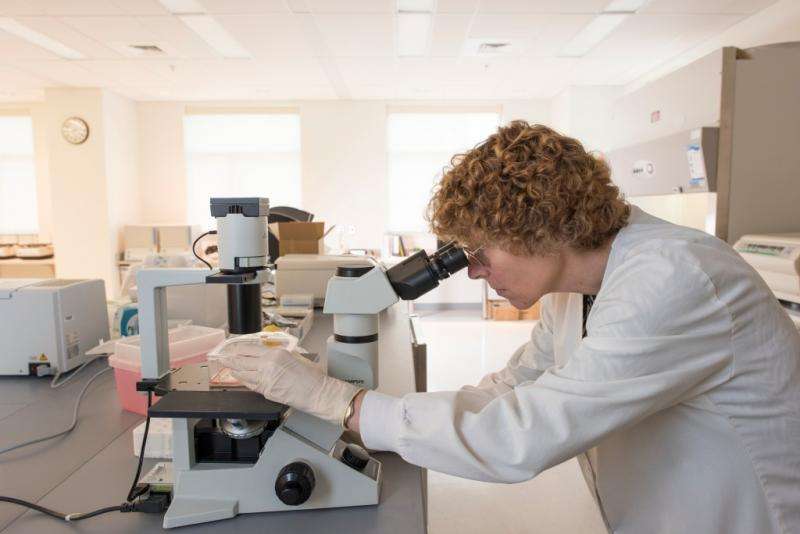New patent paves way for breast cancer prevention

George Mason University researchers have patented a new breast cancer treatment that uses a common malaria drug to stop cancer in its beginning stages.
Chloroquine, a drug commonly given to prevent or treat malaria, targets "ductal carcinoma in situ," or DCIS, the most common type of pre-invasive breast cancer. DCIS is the main precursor to invasive, metastatic, and lethal, breast cancer.
DCIS shows up as white spots in a breast MRI. Those white spots are calcifications that may mark where DCIS cells are growing in the milk ducts, said Virginia "Ginny" Espina, a researcher at George Mason's Center for Applied Proteomics and Molecular Medicine who spearheaded the work and holds the patent with center co-director Lance Liotta. Not every instance of DCIS becomes cancer, but the majority of breast cancer goes through the DCIS stage, she said.
Chloroquine works by killing off the pre-invasive cells that are accumulating in the milk ducts. Any drug, including chloroquine, which acts on this same target is covered under the patent. The malaria drug has few side effects, Espina said.
The patent is a significant step in combating breast cancer because it will pave the way for drug companies to develop chloroquine-like treatments to kill the cancer before it starts, Liotta said.
Women could take chloroquine as a cancer preventative as a matter of course, Espina said.
"When your cells realize they don't have enough nutrients, they eat pieces of themselves," Espina said. "It's a way to make energy when you don't have enough food."
And that's the spot the DCIS cells are in as they pile up in the milk duct. They're not getting enough oxygen and food and are squashed together.
"It's like being in a crowded elevator," Espina said. "You're next to people but not necessarily next to people you know or like. It's the same way for these tumor cells or pre-invasive cells. They're next to a cell, but they're crowded, hungry and not anchored anywhere, and cells like to be anchored and have a home.
"For all these reasons, they're under stress. When a cell is under stress, it's a life-and-death struggle. They're not just going to die. They're going to do what they can to survive."
Chloroquine works like Pepto-Bismol; it alters the cell's digestive process and stops them from making energy, Espina said. The pre-invasive cells die but the healthy cells are not affected.

Currently, patients with pre-invasive breast cancer are told to "watch and wait" or to have a lumpectomy or a preventative mastectomy, Liotta said.
"Some doctors tell patients to leave it alone and watch it over time because it may not become invasive, or recommend surgery followed by hormone-based and/or radiation treatment," Liotta said. "But we know that if you do nothing, then there's a high likelihood that the cells will become invasive. Chloroquine treatment provides an additional treatment option, even for those women who choose watchful waiting and surgical therapy."
In 2008, Espina developed the idea to use chloroquine against breast cancer cells after reading research and using the drug in another project. "We just tried it, which is how most of our advances have been made."
The research is part of an ongoing clinical trial, the PINC Trial (Preventing Invasive breast Neoplasia with Chloroquine).

















